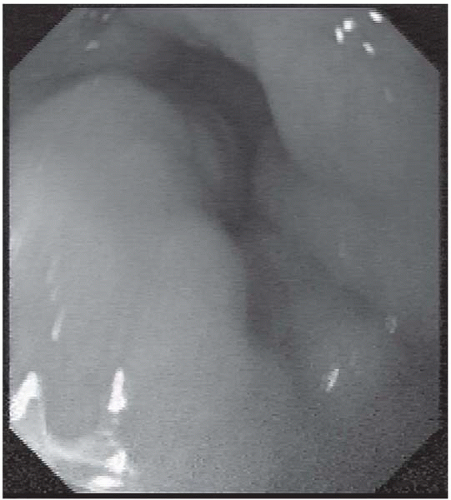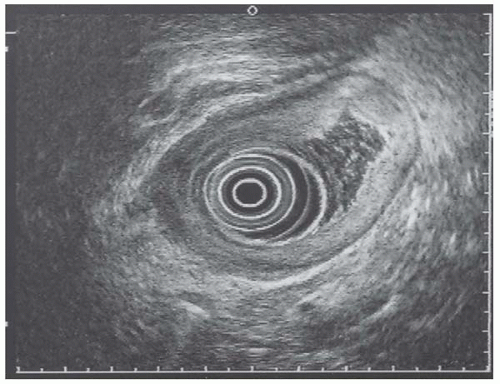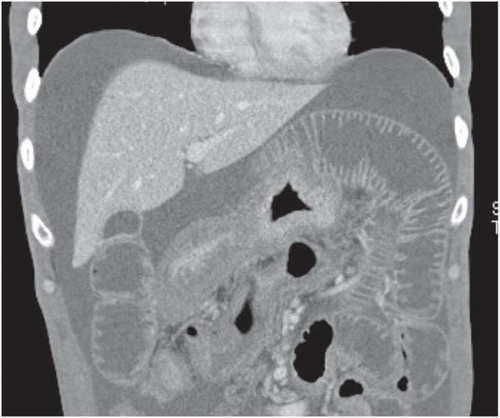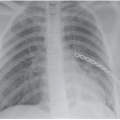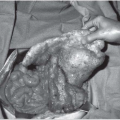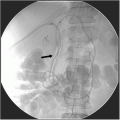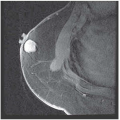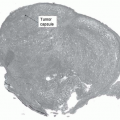Case 20
Presentation
A 42-year-old woman presents to your office with dyspepsia and weight loss. There are no signs of dysphagia, but she reports early satiety. Her vague upper gastrointestinal (GI) complaints have been present for 2 months. She treated the symptoms by herself with proton-pump inhibitors for 2 weeks, which did not resolve the symptoms.
▪ Endoscopic and Endosonographic Images
Endoscopy and Endosonography Report
The esophagus is inconspicuous; giant folds in the whole stomach show no signs of tumor growth; and the duodenum is normal. The stomach cannot be unfolded after insufflation during endoscopy. On endosonography, there is thickening of the gastric wall.
Differential Diagnosis
A large variety of problems can lead to upper GI discomfort and/or dyspepsia. These include gastritis with Helicobacter pylori infection, peptic ulcers, and gallbladder problems. Not all dyspeptic problems will be completely solved with diagnostic tests. Nevertheless, one has to be very suspicious not to overlook tumors in the upper GI tract, especially in young, apparently healthy individuals. Every upper
abdominal discomfort should lead, at least after 2 weeks of unsuccessful medical treatment, to upper GI endoscopy with biopsy. As with other gastric neoplasms, there are no specific signs or symptoms that denote linitis plastica. Initial symptoms are usually nonspecific and well tolerated, and often these patients may develop early satiety.
abdominal discomfort should lead, at least after 2 weeks of unsuccessful medical treatment, to upper GI endoscopy with biopsy. As with other gastric neoplasms, there are no specific signs or symptoms that denote linitis plastica. Initial symptoms are usually nonspecific and well tolerated, and often these patients may develop early satiety.
Diagnosis
Total carcinomatosis of the stomach, suspicious for linitis plastica.
Case Continued
The histology report revealed no signs of adenocarcinoma of the stomach. A second endoscopy with multiple biopsies is ordered. During this endoscopy, 14 deep biopsies are taken. These biopsies reveal adenocarcinoma of the stomach, grading 3, and of the diffuse type according to the Lauren classification.
Recommendation
Diagnostic laparoscopy is essential in these patients, because patients with linitis plastica have peritoneal spread in about 70% to 80% of cases at presentation.
▪ Laparoscopic Image
Stay updated, free articles. Join our Telegram channel

Full access? Get Clinical Tree


